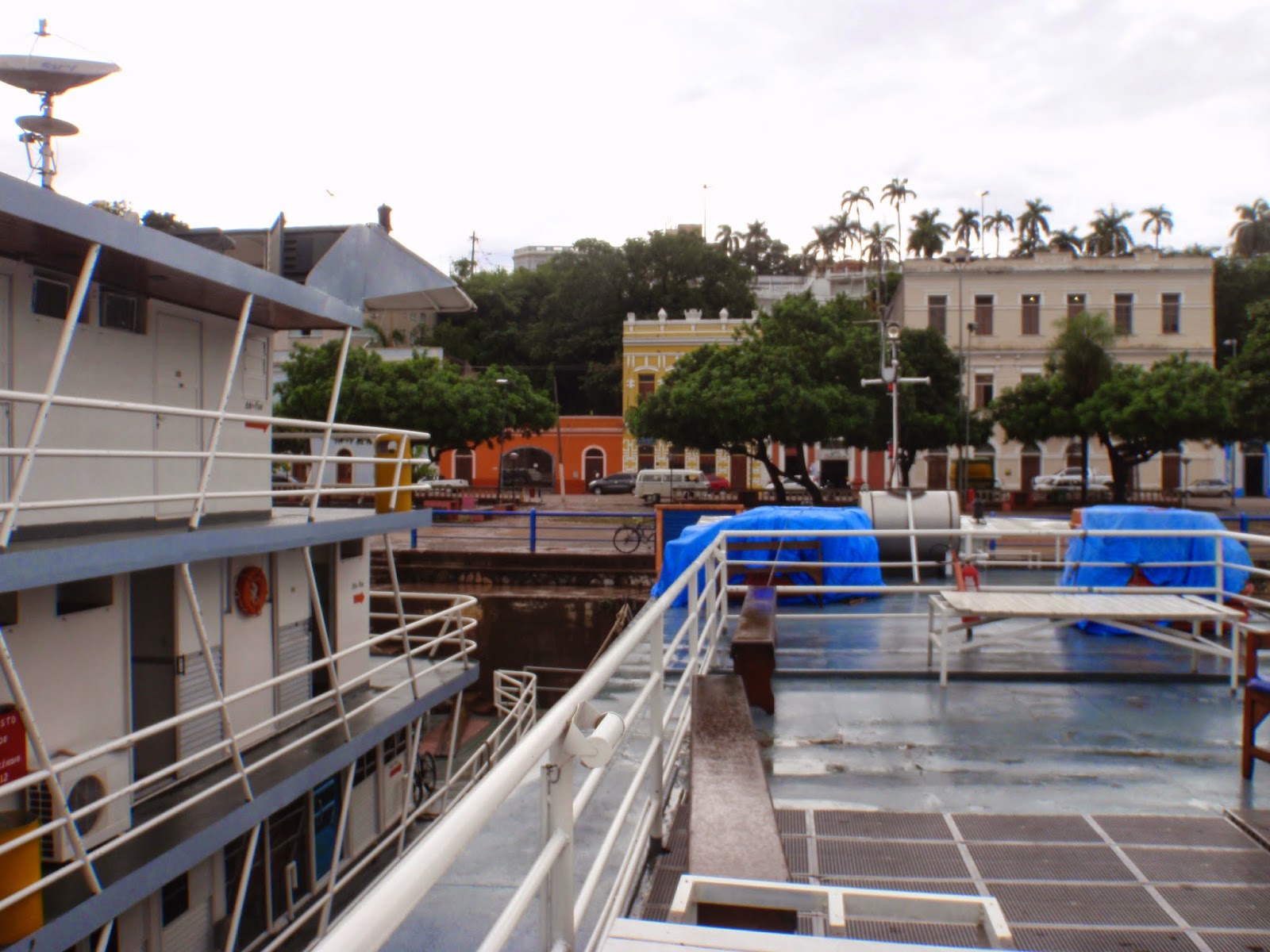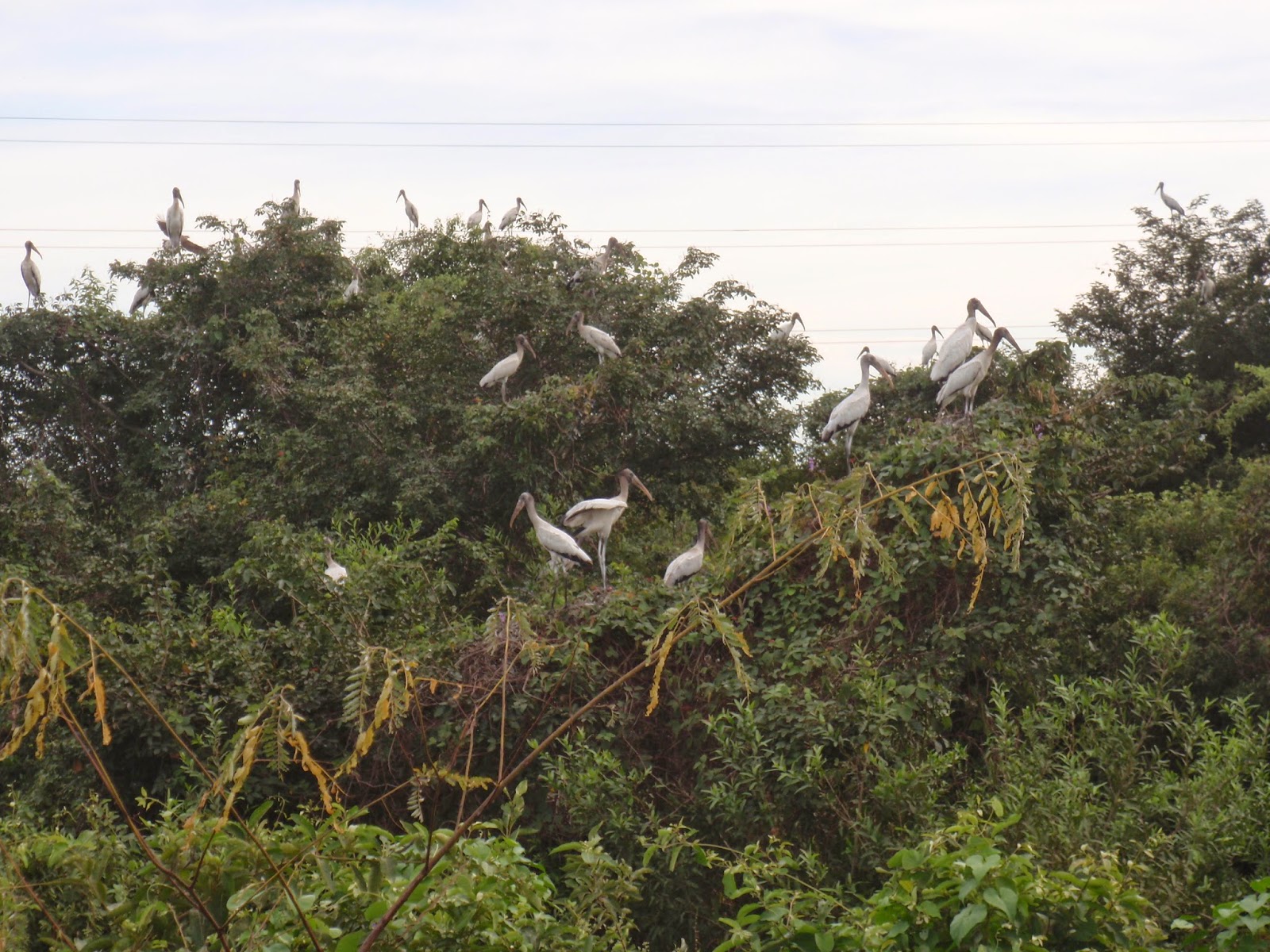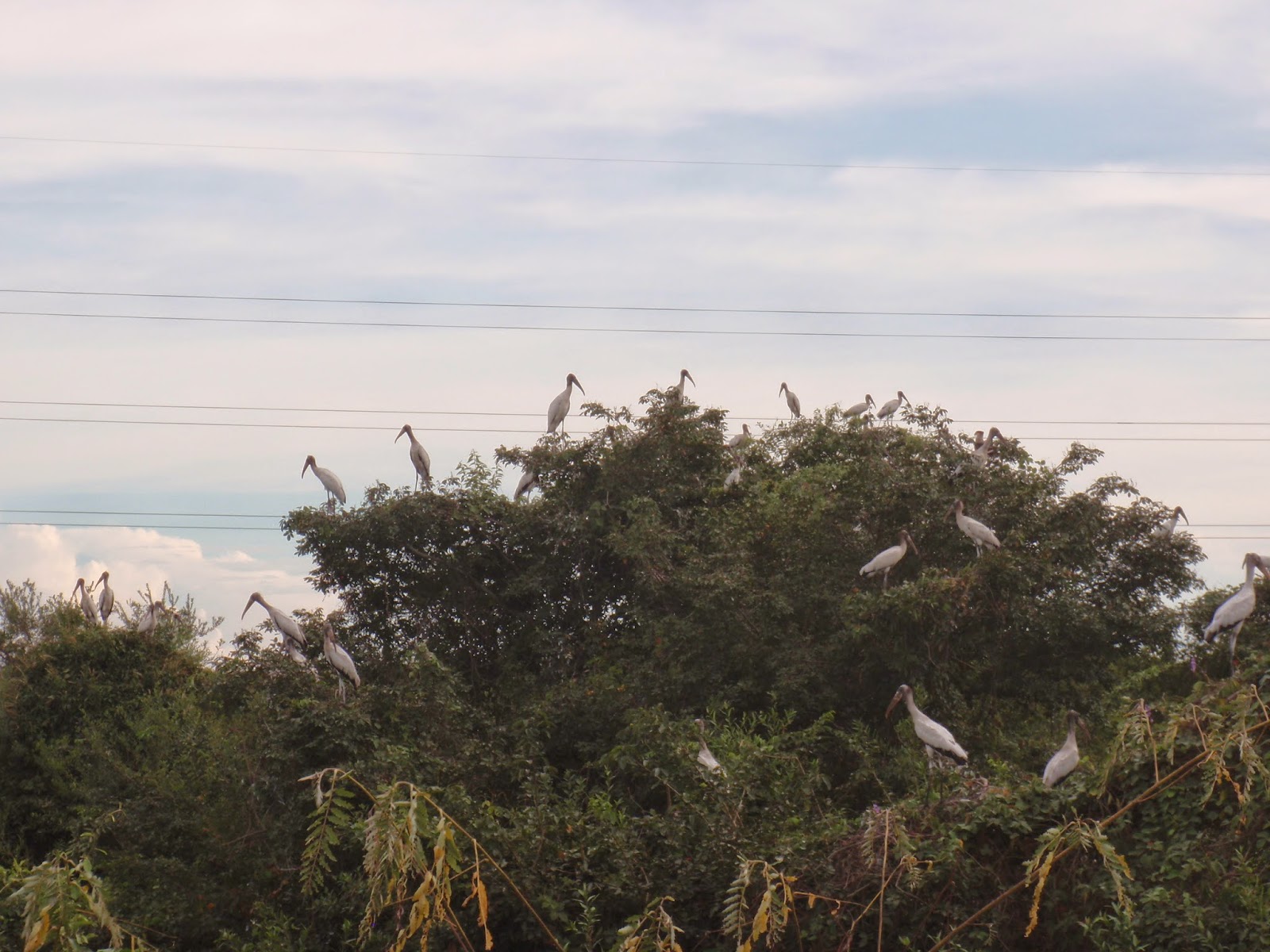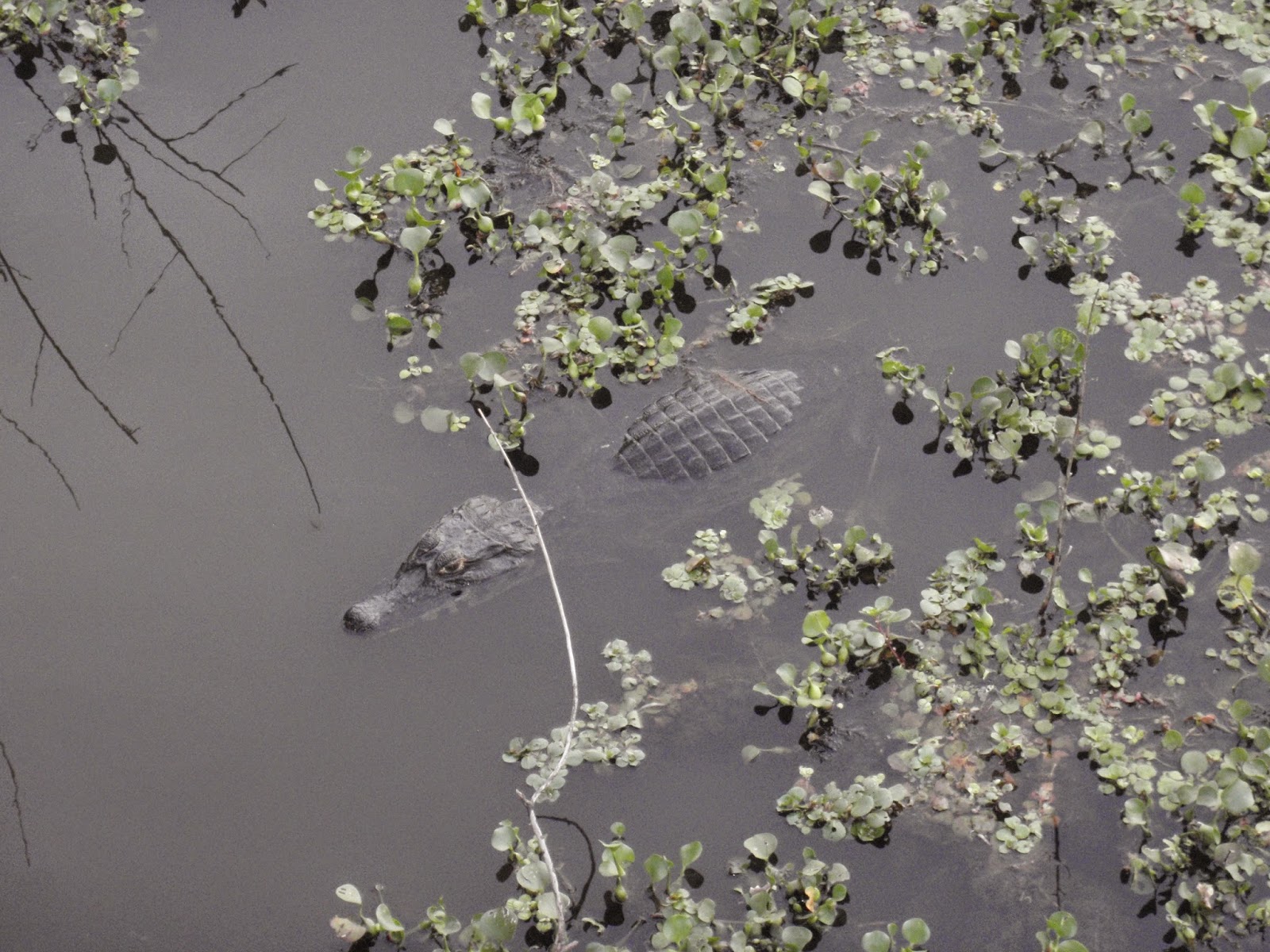Monday, February 2 – We departed the hotel early and headed toward
Cascavel in the state of Parana. We visited Coopavel’s Annual Fair which is
much like Farm Science Review. Several
American companies were there and it was interesting to see how welcoming they
were to us. Some of the American companies
were Monsanto, Syngenta, Dow, Case, John Deere, Massey Ferguson, Bayer, Toyota etc. There was a booth on how to make their
regional hot tea and cold tea. It is a
very unique process and very different than the U.S. We ate lunch there and left about 2:00
pm. The students were able to get the
corn popsicles again, try several different kinds of coffee, and enjoy a gorgeous day talking with representatives
from various companies. After departing
Cascavel we drove seven hours to Dourados in the state of Monto Grosso Do Sul We spent two nights in Dourados.
Tuesday, February 3 – We visited a family owned business which was
quite interesting. It was called the
Jangada Group with seven locations and 150 employees. They farmed 30,000 acres and had 65,000 cows
along with 50,000 hectares of pasture and then they grew soybean, corn, wheat
and beans. The business started as a
farm, then they added the warehouses and cereal grains and then they added the
inputs (pesticides, fertilizers, seeds etc.).
The sponsor a field demonstration each year for each crop for farmers to
see what the Jangada Group are advising.
They also offer projects for the youth in the community through the
schools and service projects. After we
had a tour of the facilities they graciously invited us for lunch at their
training and sales center. It was a
gorgeous set up and great meal of beef, fish, salad, pineapple and
dessert. When they bought the land it was
a wet land and they dammed the river that was on the property and built a
man-made lake. We walked out on a dock
that went out over the lake and there were two training centers with kitchens
and one covered picnic area. The site
was beautiful!! The lake was loaded with
fish and the students were able to feed the hungry fish. Lucas, one of our Brazilian students, decided
he would try to catch a fish and when he did a second fish decided it didn’t
like that and bit his finger. It
surprised Lucas!!
In the afternoon we visited another Embrapa Research Station focused on
research related to sustainable integrated systems to improve soils in the
Cerrado region, soybeans, brachia and corn.
They are also developing technologies to produce vegetables and fruits
locally rather than receiving 90% from other states. They had demonstration plots to show farmers
recent research and practices on diseases, insects, pruning, management
etc. They specifically were studying
guava because it supplies 50% more Vit C than oranges. There also is a white guava that then
supplies 50% more Vit C over the pink Guava.
The group set up a table of goods made from guava and we sampled, candy,
bread, juice, the actual fruit, and cheese.
Hmmm, Hmmm good! We met Bruno who
worked at Syngenta in the evening for dinner.
Wednesday, February 4 – We departed the hotel and headed for Jardim
where to enjoy an afternoon of snorkeling.
Everyone was very excited for the opportunity to go snorkeling and some
were anxious about the experience. The
afternoon clouded up and a storm rolled in but it didn’t stop us from the
experience. We split up into two groups
of nine and a group of four. We put on
our fashionable wet suits and boots to prepare for the training and swim. A shout goes out to Kayla for beating her fear
of the water and actually snorkeling with us and allowing herself the same
opportunity as the rest of us in seeing the fish and growth in the very clear river. The river is so clear. It was an awesome experience. After snorkeling we drove about five hours to
Campo Grande. It was a late night
arriving at the hotel and a short night for sleeping.
Thursday, February 5 – Embrapa here we come!! This time focused on livestock. Three faculty members presented information
on grass improvement, cattle improvement, animal feeding, and precision
agriculture. In Brazil 95% of the beef
cattle are grass fed. There is 851
million hectares in Brazil and 61% is in vegetation and 27.7% in forests. Brazilians need to improve grass production
and decrease deforestation. They have made a great leap in cattle
production but this must continue to improve.
People need to get out of their comfort zone to make this work. We also learned about mineral and protein
energy supplements. Mineral supplements
are widely used but protein-energy supplements is not widely adopted. Zebu cattle are widely grown because they are
healthy and sustainable. They make good
mothers. We also saw some of their
animals and one of the faculty members discussed his breeding program. As we made our way to the city of Corumba we
drove through a storm so we needed to adjust our schedule for the rest of the
day. Rather than driving through the
Pantenal Nature Preserve we drove straight to the hotel.
Friday, February 6 – We woke up to rain so returning and driving through the Pantenal Nature Preserve was not an option. It would be too wet for the bus to get through. Therefore we were lucky enough to be able to move the Paraguay River Tour to the morning and try for the Pantenal in the afternoon. The river tour was a time to relax. We took a boat out from Corumba upstream and then came back downstream and went around a tributary. We saw barges and tugboats, six alligators, lots of birds, other boats and not much sun. They served us sausage snacks, paraanha soup, and then a typical Brazilian lunch with beef and fish.
Friday, February 6 – We woke up to rain so returning and driving through the Pantenal Nature Preserve was not an option. It would be too wet for the bus to get through. Therefore we were lucky enough to be able to move the Paraguay River Tour to the morning and try for the Pantenal in the afternoon. The river tour was a time to relax. We took a boat out from Corumba upstream and then came back downstream and went around a tributary. We saw barges and tugboats, six alligators, lots of birds, other boats and not much sun. They served us sausage snacks, paraanha soup, and then a typical Brazilian lunch with beef and fish.
After the boat ride we got cleaned up and left
for our long ride. We started with the
drive the Pantana Nature Preserve. From
the pictures you can see we saw many alligators, some cappy barro including a
family of a mother, father and two babies, lots of birds and even had to wait
on a group of cowboys moving cattle from one field to another. Guess was there about 1300 cattle being
moved. There was the group that came by
the bus as well as a group off to the right of the bus being moved through some
pasture and brush. All in all this long
trip was 23 hours long.
Saturday night we spent in Olimpia. No luck with Wi-Fi. Today, Sunday, we spent all day at a very nice waterpark. I did not take any pictures since everyone was in bathing suits. We drove to Franca tonight and it's 11:51. pm. I am taking advantage of the Wi-Fi. Yea!!!!!!! Tomorrow is our last day of the long trip. We will be back at Antonio's Palace tomorrow night.








































































No comments:
Post a Comment